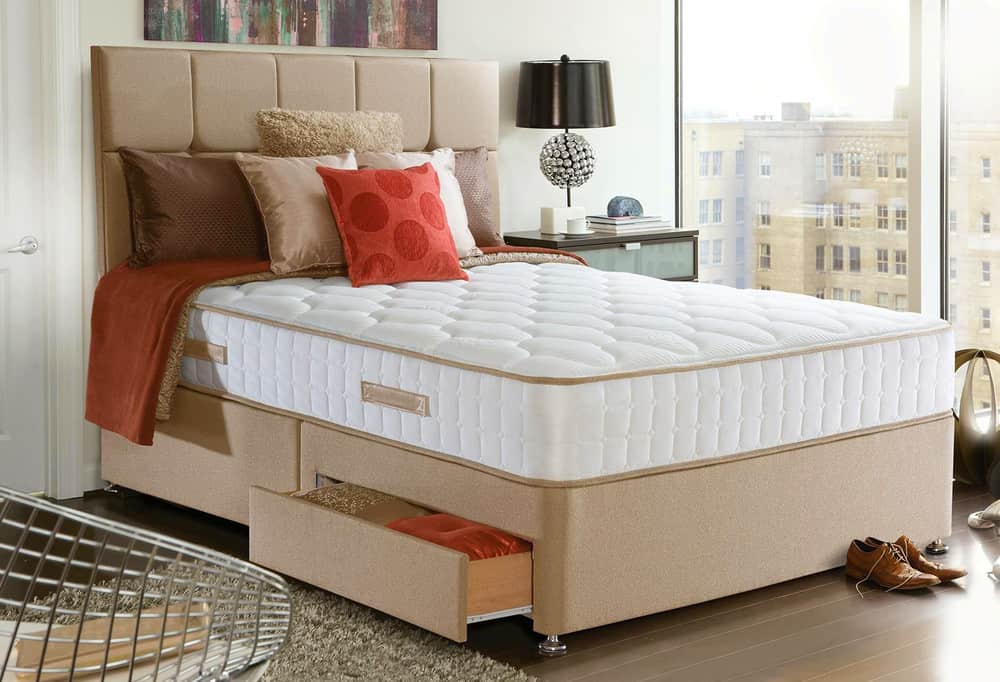
Before buying a new mattress you ask yourself what mattress should I buy. First, you have to make sure you’ve read the product reviews. Brands can sway consumer reviews by inviting their own customers to write about their experience with a specific mattress. You can also check out third-party review sites, as these are more reliable. If you’re still not sure about the quality of a particular brand’s products, try reading the worst reviews, which may show how a company has handled negative feedback. You should also consider the delivery options, as well as the cost.
Firm or soft?
Which is better for you: a firm or soft mattress? The answer to this question depends on your personal preference and body weight. If you are a lighter person, a soft mattress may feel too soft, while larger people may feel that it presses through the comfort layer. Likewise, a firmer mattress will be more comfortable for people with back pain. In order to determine what is best for you, try lying down on a mattress in each firmness level.
Firm mattresses provide more support for heavier individuals, but they can’t always handle your weight. They may also not provide sufficient support for sleeping on your side, back, or stomach. This can cause discomfort and sleep hotness, as you move from one position to another all night long. In addition, you may find it difficult to change positions during the night on a soft mattress. A firm mattress also helps prevent you from waking up too early and may be more comfortable during the day.
Cost
There are a lot of different factors to consider when determining the price of a mattress. The density of the comfort layer, the number of coils, and the overall construction of a mattress can all affect the cost. High-quality products should also be more durable. Higher-density models should be more expensive than cheaper alternatives. Additional factors to consider include eco-certified materials, such as GOTS certified cotton and CERTIPUR-US foams. Some models also have additional features, like cooling systems and zoned support systems.
Many manufacturers offer free delivery to the lower 48 contiguous states. However, some retailers may charge you $50 to $100 for delivery and setup. You may also need to pay additional fees for in-home assembly, which could be an additional cost. Some online retailers also offer an option to set up the mattress for you at home. Purchasing online will result in lower costs, but it’s important to consider the shipping costs and installation fees, which can add up quickly.
Size
When buying a mattress, size is one of the most important factors. The size of a mattress is defined by its width and height. In North America, the term “king” refers to a bed with a higher height than a twin mattress. European countries use different terminology. There is no universally accepted size of mattress. It can be confusing to choose the wrong size. The size you choose will depend on what you need it for, and where you live.
The two standard sizes of a bed for two are the full and queen. These mattresses are shorter and narrower than their queen counterparts. Queen mattresses are larger and longer, but they are still relatively short when compared to queen sizes. In fact, a full-sized mattress is 5 inches shorter than a queen. However, you may want to get a queen-sized mattress if you are tall. Queen-size mattresses are 80 inches long.
Coil count
A queen-size mattress should have a coil count of at least 400. Although a higher coil count will usually result in a firmer mattress, coil count does not necessarily correlate with durability. Other factors to consider are coil gauge, height, and turns. Steel coils will help keep your spine in an even plane. While coil count is an important aspect of a mattress, it is not the most important feature. When shopping for a new mattress, ask about the coil gauge.
The coil count of a mattress measures how tightly the springs are packed. Higher coil counts mean a firmer, more supportive mattress. Also, the coils must be individually wrapped. Some coils have up to 1,000 coils. High-density polyfoam is also a key component of a mattress. This layer provides a firm foundation and prevents the coils from moving too much. However, high coil counts mean a firmer, more comfortable mattress.
Memory foam vs spring mattress
When choosing between a memory foam mattress and a spring mattress, there are many factors to consider. The quality and density of memory foam will determine how long the mattress will last. A spring mattress is prone to sagging and losing its support after two to three years. A memory foam mattress will maintain its shape and support for as long as the manufacturer expects it to. Both spring mattresses and memory foam mattresses can last between 8 and 10 years, but springs will wear out sooner than memory foam.
The pros and cons of each type of mattress are discussed below. A memory foam mattress is made of petroleum-based foam, while a spring mattress is made of steel coils made from natural metals. Both types of mattresses offer many benefits, but memory foam is known for its pronounced cons. It can be a good choice for those who are concerned about off-gassing, as it can absorb heat. Spring mattresses are also known to keep the body temperature cool and are generally more durable.
Latex vs latex hybrid
While both latex and hybrid mattresses are made of latex, the latter is more durable. The benefits of latex over foam are primarily the same. Latex is breathable and allows for better air flow. In addition, natural latex pulls body heat away from you while sleeping, which means it doesn’t require cooling technology. Despite the similarities between these types of mattresses, some differences remain. If you’re on the fence about the benefits of latex, read on for a comparison of the two materials.
While both types of mattresses are softer, latex is typically more expensive. Hybrids can be expensive, with the average queen-size hybrid costing around $1,700. In addition, latex mattresses are not as inexpensive as hybrids, and many hybrids are made with memory foam. A latex mattress can cost anywhere from $900 to $5,000. Ultimately, your decision will depend on what you value most in a mattress.











